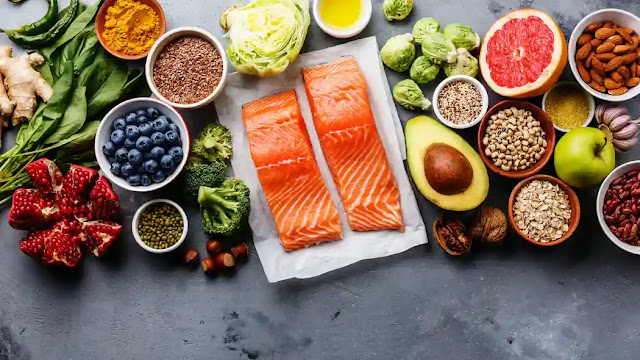One study looked at the impact of inflammatory foods on the onset of heart disease.
May your diet be your only medicine. A study published in the Journal of the American College of Cardiology sought to assess the positive effects of consuming certain foods on lowering the risk of inflammation and heart disease. Chronic inflammation plays an important role in the development of heart disease and stroke.
For this study, the researchers analyzed data from more than 210,000 people. They all completed a survey every four years to check their food intake. “Using a food index to assess inflammation levels, we found that eating patterns with higher inflammatory potential were associated with increased rates of cardiovascular disease,” said Jun Li, MD, PhD, senior author study and research scientist in the Department of Nutrition at Harvard TH Chan School of Public Health. Before continuing: "Our study is among the first to link a dietary inflammatory index with a long-term risk of cardiovascular disease."
Opt for spinach and carrots
According to this study, those who followed pro-inflammatory diets had a 46% higher risk of developing heart disease than those who did not. In addition, 28% also had a higher risk of stroke, compared to those on anti-inflammatory diets. Based on these results, the researchers recommend consuming foods with higher levels of antioxidants and fiber to help fight inflammation.
Thus, they encourage eating green leafy vegetables (kale, spinach, cabbage, arugula), yellow vegetables (pumpkin, yellow peppers, beans, carrots), whole grains, coffee, tea, etc. To make an ideal plate, they recommend limiting the intake of refined sugars and grains, fried foods, sodas and restricting processed, red and organ meat.
Include nuts in your diet
"Better knowledge of the health protection provided by different foods and diets should provide the basis for designing even healthier diets to protect against heart disease. When choosing foods in our diet, we must indeed be wary of their pro-inflammatory and anti-inflammatory potential, "assures Ramon Estruch, MD, PhD, senior consultant in the department of internal medicine at the hospital clinic in Barcelona, Spain.
Another study investigated the benefits of incorporating nuts into your diet. For this, 634 participants were given either a nut-free diet or a nut-free diet (about 30 to 60 grams per day). Result? Those who dieted with nuts showed significantly reduced levels of inflammation in the body in six of the ten inflammatory biomarkers tested.


0 Comments